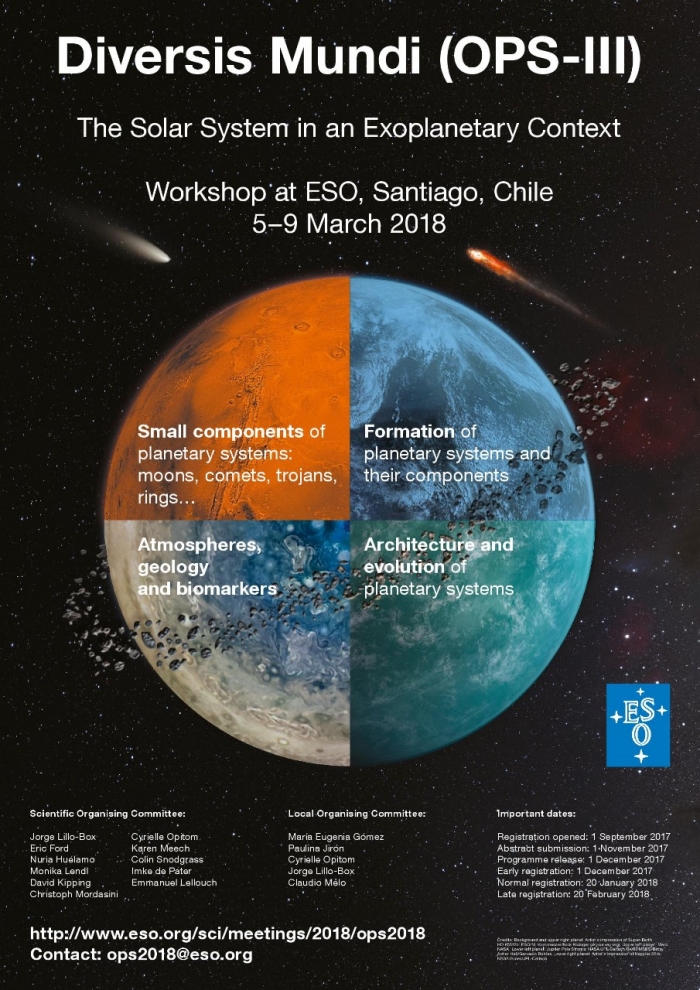Diversis mundi: The Solar System in an Exoplanetary context
ESO, Santiago, Chile, March 5 - 9, 2018
Scientific Rationale
This one-week workshop has for objective to bring together the solar system and exoplanet scientific communities and explore how the expertise and recent discoveries in those fields can feed and contrast each other. Strong interactions and collaborations between both communities are essential, as the discovery of exoplanetary systems with a large variety of architectures can teach us about the formation and history of our own solar system, and the deep understanding of our own environment can help us towards our search for life traces outside of the solar system. Various aspects such as formation and architecture of planetary systems, small components of planetary systems, or planetary atmospheres and biomarkers will be discussed from both points of view and in the context of the forthcoming new observational facilities. During this workshop, emphasis will be made on developing new ideas and encouraging synergies between both fields, and plenty of time will be left for discussion and interactions. The main topics and related questions are:
a) Formation of planetary systems and their components: How do theories for the formation of exoplanets affect Solar System formation models? How well do they match the observations?
b) Architecture and evolution of planetary systems: How does the Solar System structure compare to other planetary systems? Why haven’t we yet found a Solar System analog? What are the consequences of planet migration here and beyond?
c) Small components of planetary systems: moons, comets, trojans, asteroid/Kuiper belts, debris disks, rings... Are they the outcome of the formation of planetary systems? What is the status of the search for exomoons, exorings, exotrojans, exocomets and how do they compare with the components in our Solar System?
d) Atmospheres and biomarkers: How do exoatmospheres compare to Solar System planets? What are the prospects for the atmospheres of rocky exoplanets based on Venus/Mars/Earth? How do moon atmospheres compare in the Solar System and what do we expect for exomoons?
Abstract submission is now closed
Conference email: ops2018@eso.org
Organizer: ESO
Total number of participants is limited to 110 by the conference facilities

